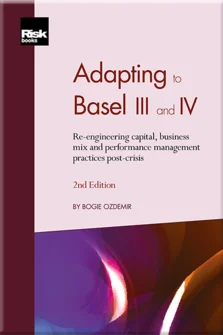Procyclicality Management: Developing a Coherent Risk Rating Framework for Risk Management, Capital Management, Stress Testing and IFRS 9 Purposes
Introduction
Environmental Forces: Economic Instability, Low Interest Rates, Change in Demographics, Continuing Regulatory Changes and Digital Evolution
Current Practices and their Shortcomings in Risk, Capital, Business-mix and Performance Management
Evolution of Economic Capital Measurement and Management
Integrated Capital Management: ICAAP and ORSA
Procyclicality Management: Developing a Coherent Risk Rating Framework for Risk Management, Capital Management, Stress Testing and IFRS 9 Purposes
Capital Optimisation and Business-mix Management
Performance, Profitability Management and Hurdle Rate
Optimal Management of the Interest Rate Risk in the Banking Book
Prudent LGD Estimation for Mortgages
Developing and Implementing Effective Fintech Strategies
Implementing IFRS 9 by Adapting AIRB Models
Organisational (Re)alignment
Risk is procyclical: it follows business cycles and increases significantly during downturns and under stress conditions. Credit downturns result in significant increases in default rates, delinquency rates and downgrades. In recessions, equity returns are low or even negative, while interest rate is also low. Risk needs to be measured in a forward-looking, conditional and PIT manner utilising all available information, so that the best possible forward-looking predictions can be made. Only then can risk be managed effectively. Under Basel II, capital requirement is risk-sensitive – so it will be procyclical, similar to risk. Excessive procyclicality of capital is not desirable as it makes capital management difficult. This presents an important dilemma: risk measures and capital requirement conditional on the business cycle preserves the time dimension of risk and provides valuable directional information for decision-making; however, stability of capital is desired for day-to-day capital management and long-term capital planning purposes. To complicate matters, the Basel framework explicitly requires a TTC rating philosophy, while the IFRS 9 explicitly requires a PIT rating
Copyright Infopro Digital Limited. All rights reserved.
As outlined in our terms and conditions, https://www.infopro-digital.com/terms-and-conditions/subscriptions/ (point 2.4), printing is limited to a single copy.
If you would like to purchase additional rights please email info@risk.net
Copyright Infopro Digital Limited. All rights reserved.
You may share this content using our article tools. As outlined in our terms and conditions, https://www.infopro-digital.com/terms-and-conditions/subscriptions/ (clause 2.4), an Authorised User may only make one copy of the materials for their own personal use. You must also comply with the restrictions in clause 2.5.
If you would like to purchase additional rights please email info@risk.net











